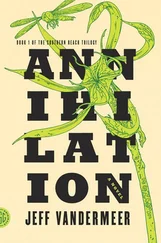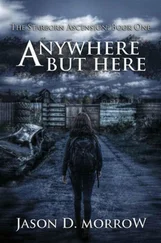Jeff Jackson - Mira Corpora
Здесь есть возможность читать онлайн «Jeff Jackson - Mira Corpora» — ознакомительный отрывок электронной книги совершенно бесплатно, а после прочтения отрывка купить полную версию. В некоторых случаях можно слушать аудио, скачать через торрент в формате fb2 и присутствует краткое содержание. Год выпуска: 2013, ISBN: 2013, Издательство: Two Dollar Radio, Жанр: Современная проза, на английском языке. Описание произведения, (предисловие) а так же отзывы посетителей доступны на портале библиотеки ЛибКат.
- Название:Mira Corpora
- Автор:
- Издательство:Two Dollar Radio
- Жанр:
- Год:2013
- ISBN:9781937512149
- Рейтинг книги:5 / 5. Голосов: 1
-
Избранное:Добавить в избранное
- Отзывы:
-
Ваша оценка:
- 100
- 1
- 2
- 3
- 4
- 5
Mira Corpora: краткое содержание, описание и аннотация
Предлагаем к чтению аннотацию, описание, краткое содержание или предисловие (зависит от того, что написал сам автор книги «Mira Corpora»). Если вы не нашли необходимую информацию о книге — напишите в комментариях, мы постараемся отыскать её.
Mira Corpora — читать онлайн ознакомительный отрывок
Ниже представлен текст книги, разбитый по страницам. Система сохранения места последней прочитанной страницы, позволяет с удобством читать онлайн бесплатно книгу «Mira Corpora», без необходимости каждый раз заново искать на чём Вы остановились. Поставьте закладку, и сможете в любой момент перейти на страницу, на которой закончили чтение.
Интервал:
Закладка:
The ropes I’ve been tied with are slippery. Maybe they’ve been this way all along. I wriggle loose from the tree, arch my back, and stretch my body. The clearing is empty. The moon is bright overhead. Bits of its light are mirrored in the shiny surfaces of the leaves. A fresh breeze combs through my hair and clothes. I feel strangely happy.
I walk in a perfectly straight line through the forest. I don’t know if this is the proper route, but I plunge onward.
The house appears in the distance. The stone farmhouse with the warm meals and the room full of beds. The place is lit up like an ocean liner. A silhouette of a boy waves to me from a bright upper window. I stall at the front gate with my hand on the latch, wary of the reaction to my return. A group of adults and older kids gathers in the yard. I can’t recall their actual faces. The adults seem glad to see me and calmly tell me that dinner is waiting. Nobody acts as if anything strange has happened. An older woman with calloused hands helps me change into fresh clothes, then leads me into the kitchen. I sit by myself on a wooden stool at the counter. The vegetable soup is still hot.
I lie tucked in my bed in the large room. The bodies in the neighboring rows are already asleep. My eyes are shut, but I’m sifting the day’s events for explanations. I suspect I’m remembering things wrong. Maybe nothing unusual happened after all. There is only the hypnotic sound of breathing, the enfolding comfort of clean sheets, the warmth of the wool blanket pulled to my eyes. This small drama approaches its end. The curtain begins its final descent.
No, wait, several nights later, I creep out of the pitch-black house, careful not to wake anyone. I venture back into the woods with a bulging backpack slung over my shoulders. I stubbornly trace a straight line through the landscape. Branches scrape my cheeks. Puddles soak my shoes. In the distance, several strays bay at the hidden moon.
The same clearing. The same sapling. I kneel on the soft grass in front of the backpack and unzip the inner pouch. Unfortunately there’s no rope inside, but I do have several jars slopped full of runny and half-rotted leftovers. I sit with my back anchored against the tree and lather a thorough coating of food over my body. It smells pretty strong, a mix of syrupy perfume and tangy mold. Now I wait for the strays to return. I try to remember the exact shape of their eyes.
Every time the wind scatters the clouds, I howl at the white moon. As my throat grows hoarse, it sounds like a tortured yelp. I repeat it over and over, but nothing stirs. The woods remain hushed. None of the strays takes the lure. They keep their own counsel.
The tips of the grass swirl in complex patterns. The surrounding bushes creak and rattle. Then a man breaks into the clearing. He seems familiar though his features remain blank. He shakes his head at the sight of me slathered in leftovers. I wrap my arms around the tree trunk and refuse to leave, but I’m too exhausted to put up a memorable fight.
I ride through the woods on the man’s back. My elbows rest on his shoulders, my legs dangle through his arms. The reliable rhythm of his steps rocks me toward sleep, though the feeling is less like settling into a dream than waking from one. The man lurches forward and I steady myself. My fingers fumble against a swath of fabric. He’s wearing a mask.
Waves of darkness, created by swiftly moving banks of clouds, roll through the forest.
The lights of the stone house blink on in the distance.
I can’t get rid of this smell.
CHAPTER 2 — MY LIFE IN CAPTIVITY
(11 years old)
“The spilled drop, not the saved one.”
— Eudora Welty
I STARE AT THE RICKETY HOUSE ACROSS THE street. The girl’s bedroom is in the front: The window on the second floor with the black curtains. Usually she peeks out and stares at me with her round green eyes. She’s been watching me for days, but rarely acknowledges my presence. Today she’s refused to even make an appearance. Maybe she’s angry at me for stealing the oranges.
I sit alone in the dining room and wait for her curtains to part. It’s late afternoon. Slivers of sunlight filter into the room and gild the bookshelves surrounding the table. One beam falls on the bone china plate that holds the two oranges. An hour ago, I shimmied up the tree near the front door of the girl’s house and plucked the only two ripe pieces of fruit.
A noise upstairs jars me out of my vigil. The sound of my mother’s drunken footsteps rustling across the floorboards. It’s been days since I’ve seen her. She circulates through the house like a ghost, bumping into furniture. We’ve been living here on the edge of the woods for 116 days, according to the secret tally I’ve been keeping on the back flap of the peeling rose wallpaper in the bathroom. Or maybe it’s been longer. The tiny scrawls have almost merged into a single desperate slash. This is typical of our cycle. I’ve spent years moving from orphanage to orphanage. Every so often, my mother reappears to reclaim me. This time I’m eleven years old.
The curtains across the street flutter. I hold my breath waiting for the girl’s pale face to emerge, but nothing happens. I’m so distracted that I don’t notice the sounds in the house have grown louder. Then I realize my mother has appeared in the doorway. Something tells me to hide the oranges, but it’s too late and I’m too hungry.
Her blouse is wrinkled and there’s a stain on her pants. She clutches a crossword book in one hand and a glass of wholesale gin in the other. The alcohol threatens to slosh over the rim. She looks like she’s been blacked out for days. “There you are,” she says, as if I’m the one who’s been missing. She runs her fingers lightly along my back. Her touch feels like it burns.
She sits across from me and opens the crossword book, wetting the pencil lead with the tip of her tongue while scanning the horizontals and verticals. She’s been working on these puzzles forever but almost nothing has been filled in. The book is mostly white spaces and empty boxes. My mother silently eyes the oranges on the plate. It’s impossible to tell what she’s thinking. She doesn’t realize I haven’t had a real meal in days.
I start to peel one of the oranges with my fingers, digging my nails into the rind to create a seam that I can tear. My mother slaps my hand.
“Damn it, Jeff,” she says. “I can’t believe you don’t know how to peel a fucking orange.” She stands up and strides into the kitchen. While she’s gone, I nervously pick the lint off my green sweater. The house across the street remains motionless.
My mother reappears with a squat silver knife with a curved crescent blade. She holds out her palm and I hand her one of my oranges. She cuts away ribbons of rind, then chops the remaining white off the fruit at sharp, elegant angles. There are no clinging flecks of rind, no skin left at all, it’s shaved down to the juice, completely exposed. She places the glistening nude thing back on the plate. I’ve never seen anything so orange.
“Don’t worry about keeping it exactly round,” she says. “It’ll find its own shape.”
She slides the knife across the table.
“Your turn.”
As I begin to sheer the skin from the second orange, the curtains across the street flutter again. The girl’s hand pulls back the fabric and one green eye peers out. Then she vanishes.
“Don’t be so delicate,” my mother scolds. I’ve been carving the orange like a soap sculpture. I change tactics and hack off pieces with quick blunt strokes. It’s pretty easy, actually. I place the peeled orange on the china plate. I brace myself for one of my mother’s explosive rages, but she gives the fruit a cursory inspection and nods. Her highest form of praise.
Читать дальшеИнтервал:
Закладка:
Похожие книги на «Mira Corpora»
Представляем Вашему вниманию похожие книги на «Mira Corpora» списком для выбора. Мы отобрали схожую по названию и смыслу литературу в надежде предоставить читателям больше вариантов отыскать новые, интересные, ещё непрочитанные произведения.
Обсуждение, отзывы о книге «Mira Corpora» и просто собственные мнения читателей. Оставьте ваши комментарии, напишите, что Вы думаете о произведении, его смысле или главных героях. Укажите что конкретно понравилось, а что нет, и почему Вы так считаете.












